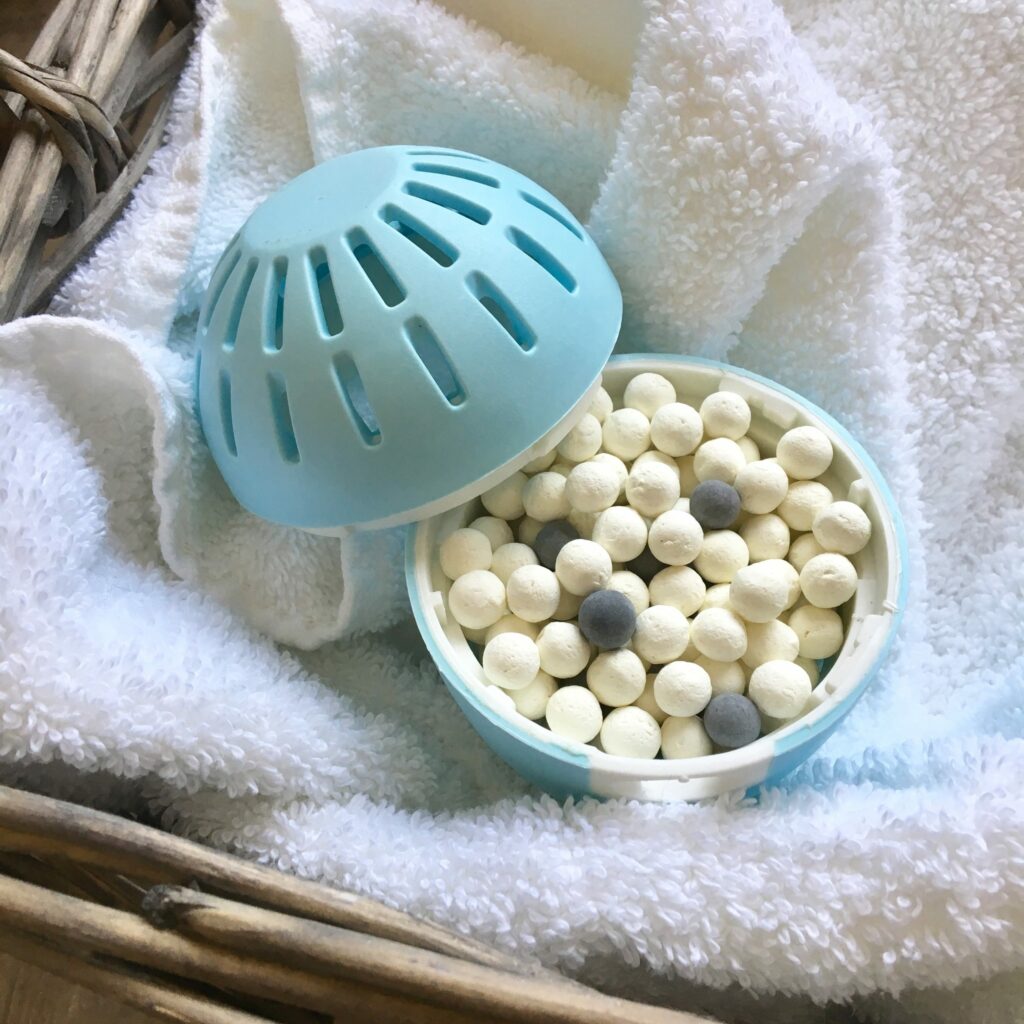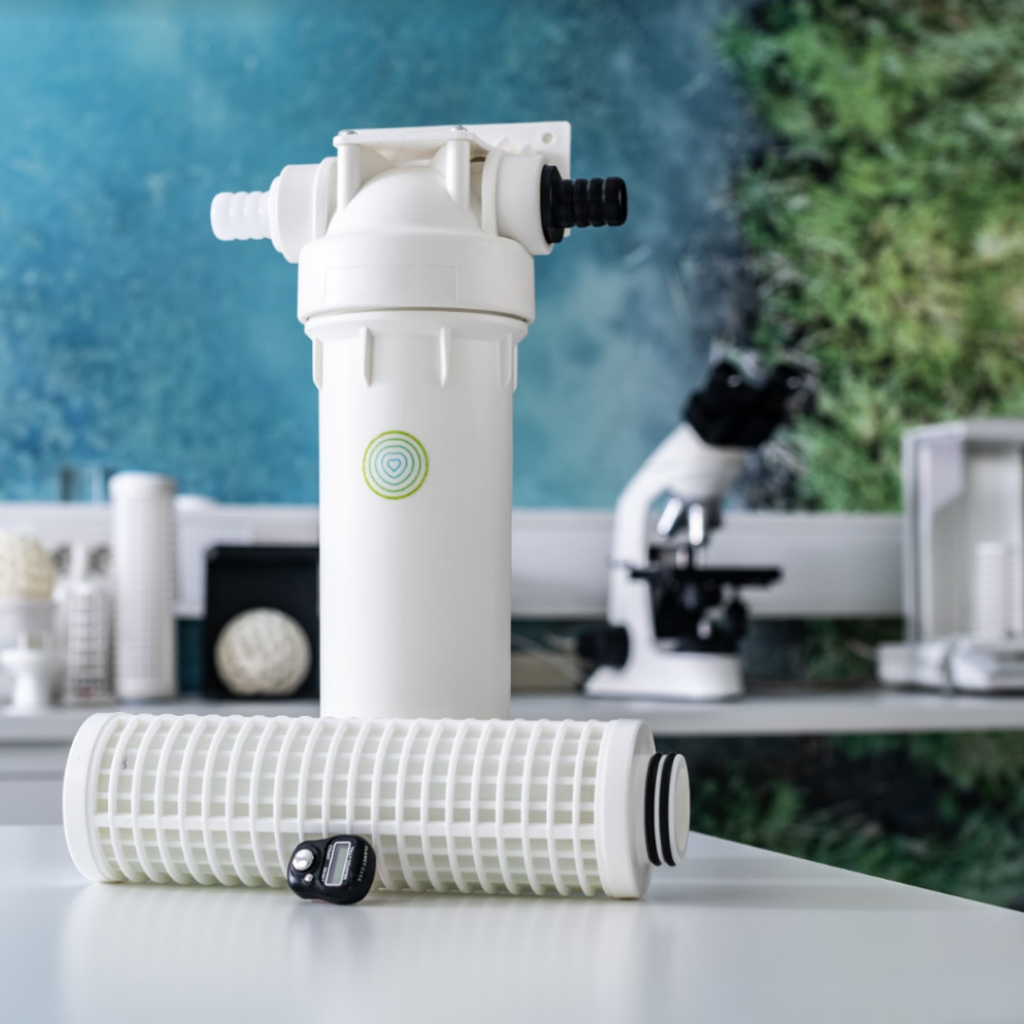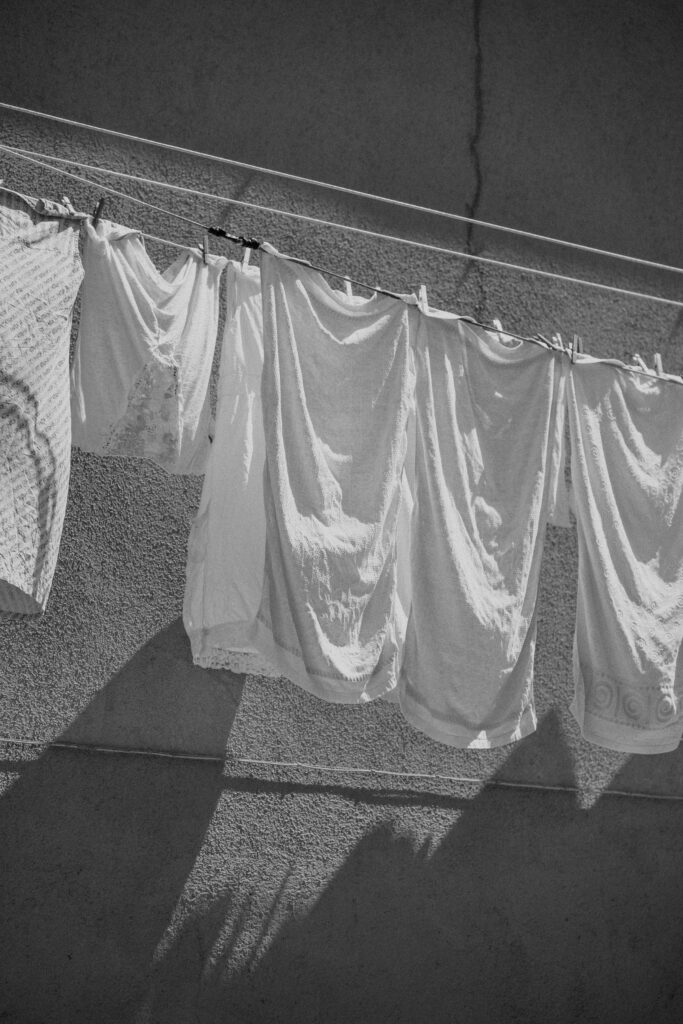To reduce your negative impact on the environment, it could be worthwhile to critically look at your laundry habits. From excessive water and energy consumption to the release of harmful chemicals and microplastics into the waterways, the laundry process can contribute to environmental degradation. By adopting sustainable laundry habits, we can reduce our carbon footprint and minimize the negative impact on our planet.
1. Ditch the liquid, save the earth
When you stroll down the detergent aisle of your local grocery store, plastic bottles dominate the scene. These bottles are often not recycled in the proper way and contribute to the plastic soup in our oceans. To put this into perspective, only 9% of plastic worldwide is recycled. The majority of this recycled plastic is of poor quality. A better option for our plastic waste problem is to not use plastic at all.
Interestingly, plastic bottles are not essential for detergent products. Suprisingly, liquid detergents are 80-90% water. Why use excessive plastic packaging just to transport water? We can save a lot by switching to alternatives. The European market for liquid detergents is worth €5.3 billion, which means we can save around 800 million bottles a year.
Many new initiatives are emerging that solve this problem. Take the EcoEgg, a recycled egg that can be used for the rest of your life. All you have to add is the detergent and conditioner pellets and you are ready to go. Let’s work together to reduce those 800 million bottles.

2. Opt for biodegradable detergent choices
Conventional laundry detergents often contain chemicals that can harm aquatic life and ecosystems when they enter the waterways. It is better to opt for biodegradable detergents that are free from harmful ingredients. These detergents are designed to break down more easily and have a lower impact on the environment. EcoEgg, mentioned above, is 100% biodegradable.
3. 30 is the new 40
One of the simplest and most effective ways to make your laundry routine more sustainable is by switching to cold water washing. Heating water for laundry requires a substantial amount of energy. Using colder water can significantly reduce your energy consumption and lower your utility bills. Going from 40 to 30 degrees already saves 40% of energy. Modern detergents are designed to work effectively in cold water, so your clothes will still come out clean and fresh.

4. Prevent microplastics
60% of the worldwide production of textiles is synthetic fiber. Every time we wash synthetic clothes thousands of tiny fibers are released into the ocean. Eventually, these microfibers move up the food chain and end up on our plates. These fibers are called microplastics and are less than 5 mm long. Unfortunately, it is not (yet) possible to completely remove microplastics from our water, meaning that they will flow into our oceans. Shockingly, it is estimated that textiles produce 35% of the microplastic pollution in oceans. What can we do about that? Preferably, we buy higher quality clothing made from natural materials. However, as a lot of people still have synthetic fabrics in their closets, we need different solutions as well. Using products like Guppy Bags or microfiber filters can help capture microplastics and prevent them from entering the ecosystem.

Click here for the washing machine filter from PlanetCare
5. Embrace air-drying
Whenever possible, skip the dryer and air-dry your clothes. Dryers consume a lot of energy, and air-drying reduces energy use and prolongs the life of your clothes. Reducing global dryer usage by 75% would result in Earth Overshoot Day shifting by 1.3 days.







